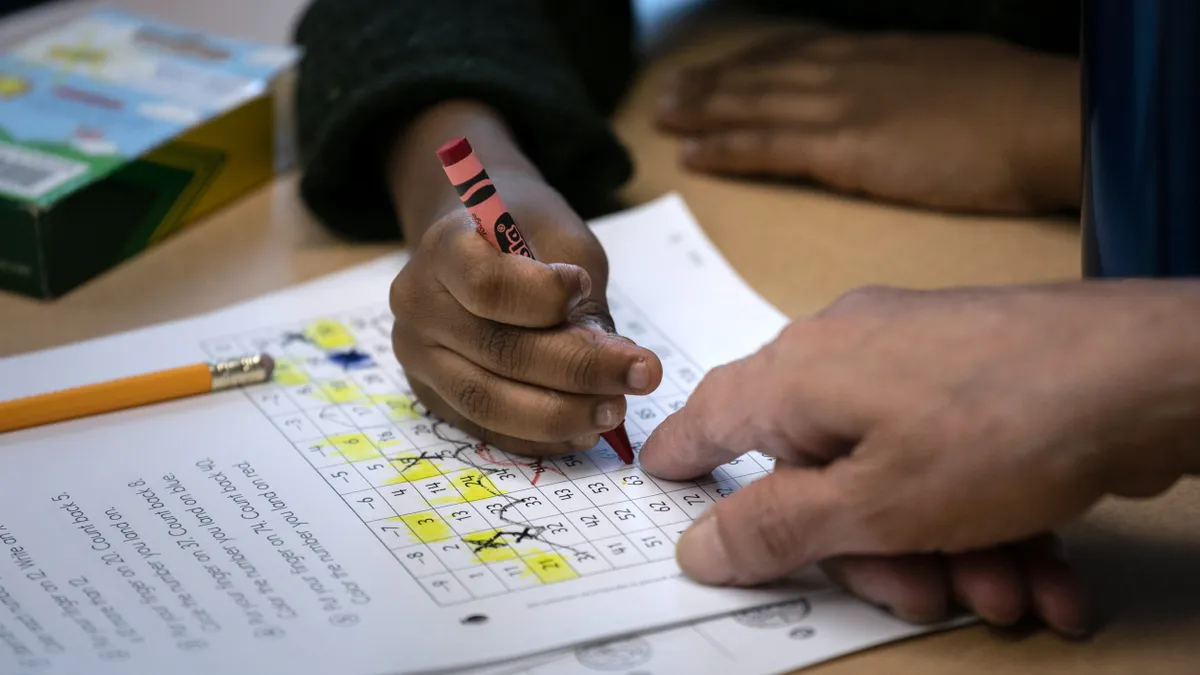Dive Brief:
- Math is a struggle for many students and pandemic-related closures were a setback, but educators can boost learners' confidence by breaking the topic down into actionable steps that allow for quick results, Dani Fry, an elementary math curriculum coordinator in Frisco, Texas, writes for Edutopia.
- Students need to understand math processes through immersion so they develop problem-solving skills that can be used in future math classes, Fry writes, adding that allowing students to get stuck on problems forces them to find their way to a solution and enhances learning.
- Math problems should also be intentionally developed to include previously acquired skills so students can continue to practice what they've learned, with rubrics ensuring that grading reflects the intention of the lesson, Fry suggests.
Dive Insight:
Remote learning and school closures negatively impacted students’ gains in math, according to data from NWEA. The research found that, on average, students lost eight to 12 percentile points in math compared to a typical year. Though achievement was lower in all groups, students of color and those from high-poverty schools were the most affected, particularly at the elementary school level.
To reverse this trend, math instruction experts say it is time to rethink how math lessons are delivered and focus on the process of solving the problem rather than just determining the correct answer. When students were learning remotely, it was more difficult for teachers to observe how students found their answers, which likely contributed to lower math performance.
Estimation is a core math concept that can support foundational learning in the subject, but many students struggle with it. Guiding learners through the process of making rough estimates and then narrowing them down can help each individual develop their own estimation strategies.
As with many math concepts, applying estimation to real-world scenarios students might face can help create connections they understand. This can also be done through collaboration and comparison between peers. As students build their own estimation processes, they can begin to understand how to determine parameters in which a reasonable answer would fall.
Confidence is ultimately key in math, according to Jo Boaler, who wrote the book “Limitless Mind: Learn, Lead, and Live Without Barriers.” She advocates for more engaging and inclusive math curriculum that better prepares students for the workforce.











